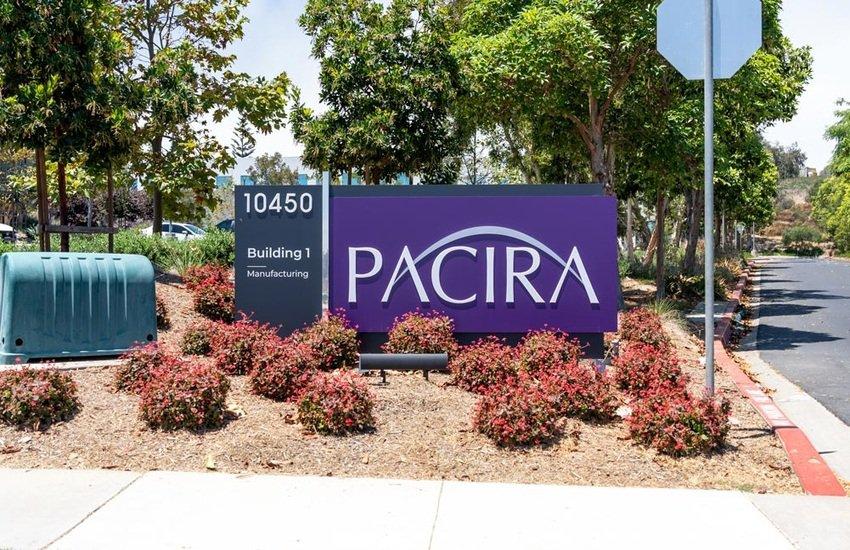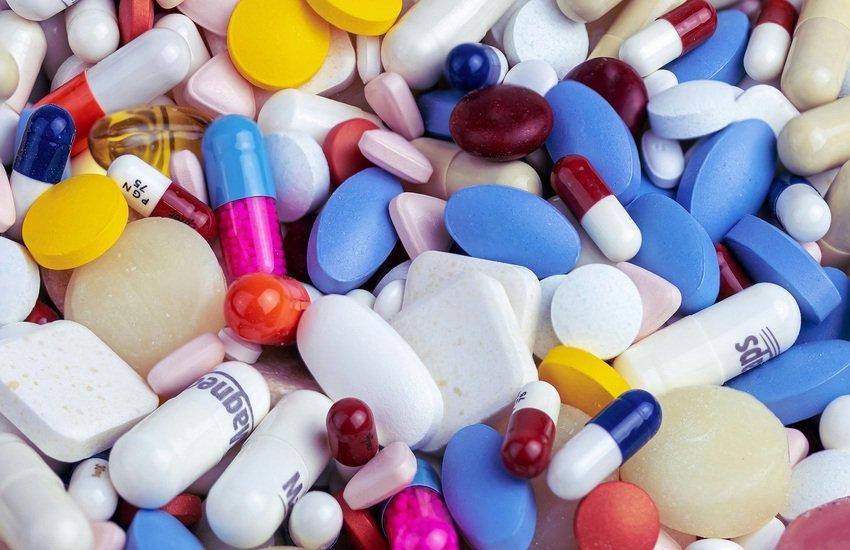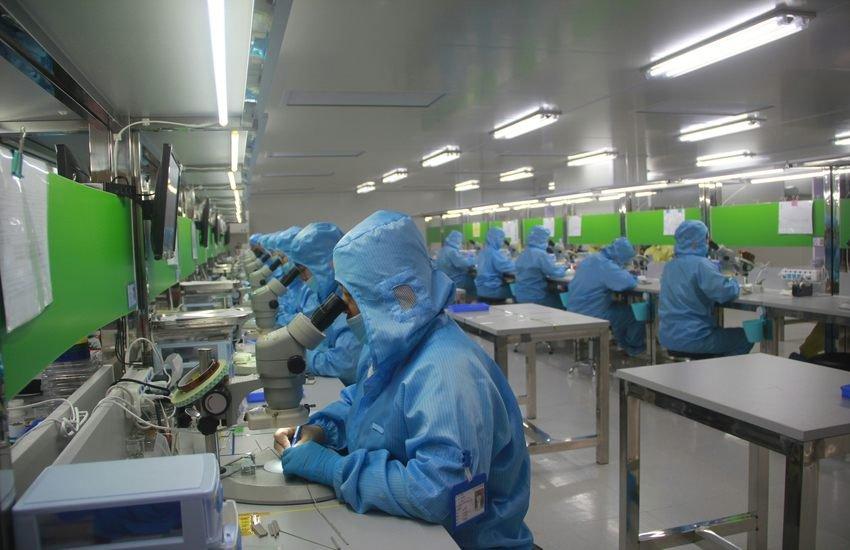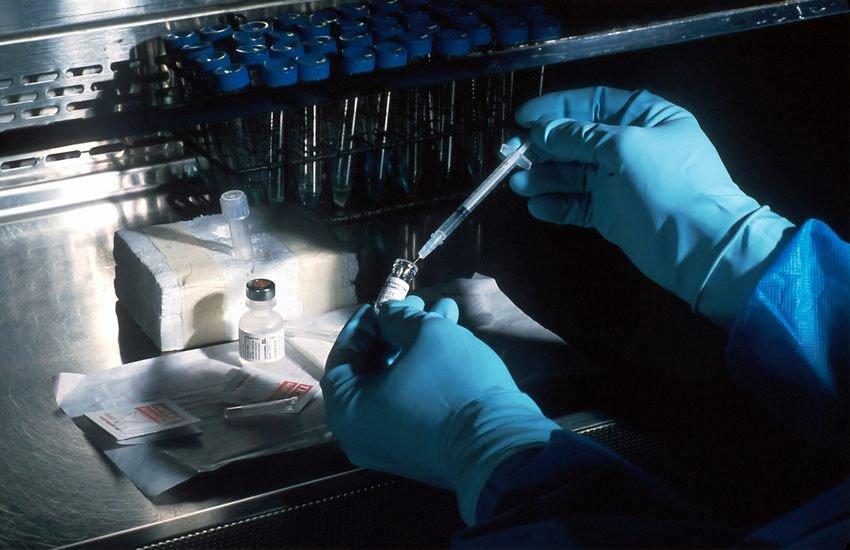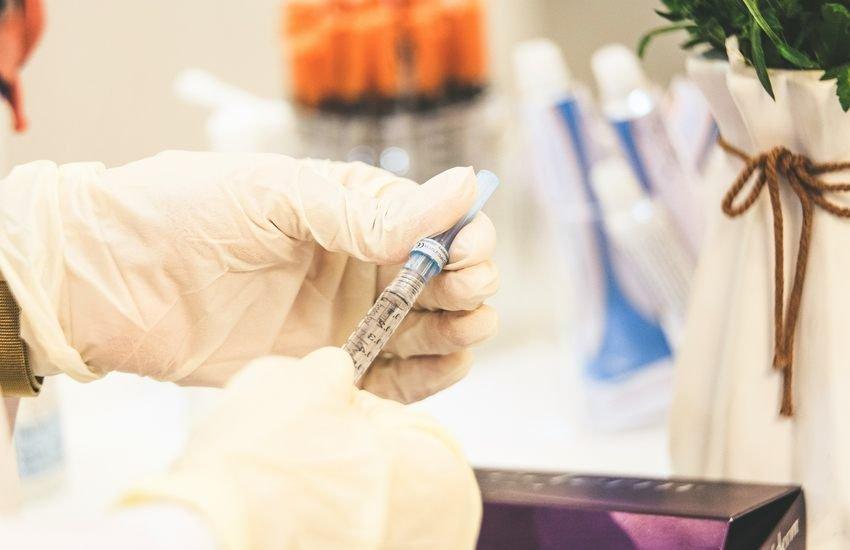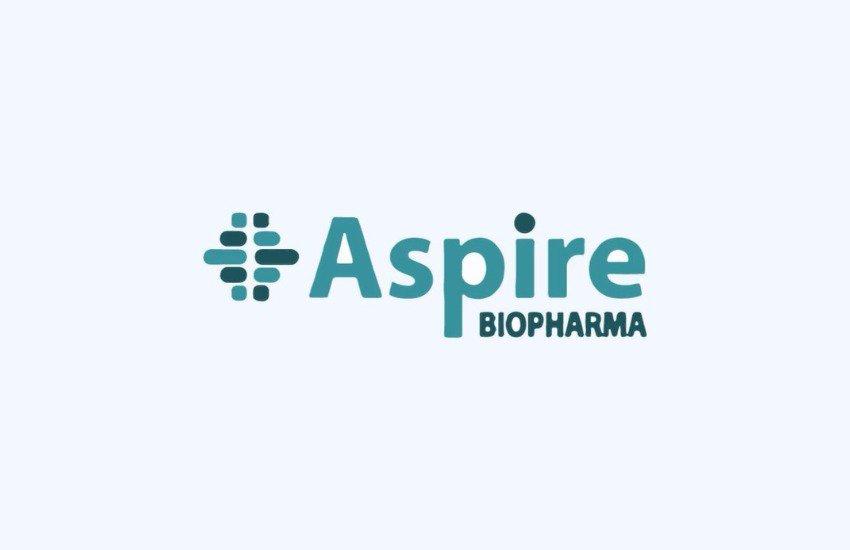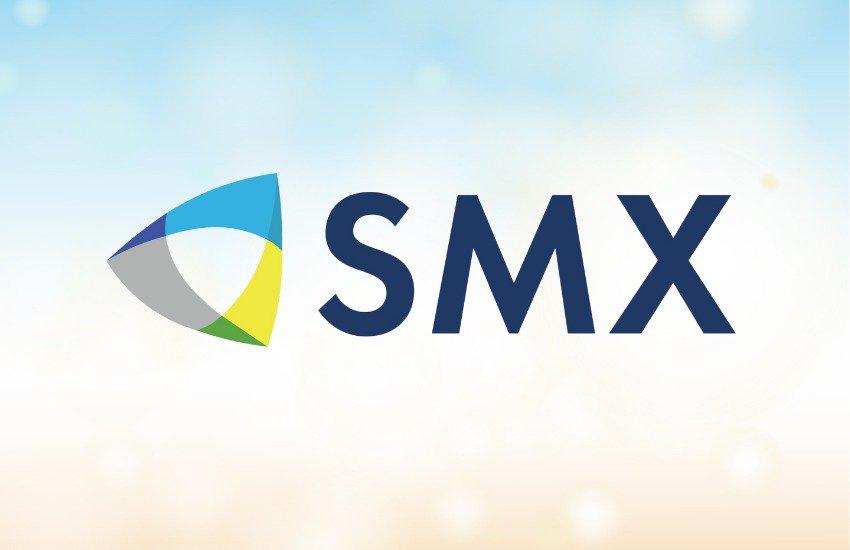Shelton, Connecticut — July 8, 2020 — NanoViricides, Inc. (NYSE American: NNVC) (the “Company”) a leader in the development of highly effective antiviral therapies based on a novel nanomedicines platform, announced today that excellent safety and tolerability of the drug candidates it is developing against SARS-CoV-2 to treat COVID-19 spectrum of diseases was observed in an animal model. The nanoviricides drug candidates tested in this safety/tolerability study have previously shown strong effectiveness against lung infection by a SARS-CoV-2 like coronavirus, namely, hCoV-NL63, in an animal study as previously reported by the Company.
Three different drug candidates at three different dosage levels (low, medium, and high) and vehicle control were administered to separate groups of mice intravenously in the Safety-Tolerability study reported here. Clinical observations and gross post-mortem studies have been completed. The tested drug candidates were safe and well tolerated, thereby clearing the path for further development towards a treatment for SARS-CoV-2 infection that has caused the current COVID-19 pandemic.
Importantly, nanoviricides are designed to act by a novel mechanism of action, trapping the virus particle like the “Venus-fly-trap” flower does for insects. Antibodies, in contrast, only label the virus for other components of the immune system to take care of. It is well known that the immune system is not functioning properly at least in severe COVID-19 patients.
Additionally, it is well known that viruses escape antibody-drugs via mutations. The Company’s “nanoviricide” drug candidates, in contrast, are designed to be broad-spectrum, and therefore virus escape by mutations is expected to be unlikely.
In this Safety/Tolerability Study, there were no clinical signs of immune or allergic reactions such as itching, biting, twitching, rough coat, etc. Further, there were no observable changes in any organs including large intestine or colon on post mortem in gross histology. The only reportable changes observed were, in the high dosage groups of two of the three drug candidates tested, associated with the non-absorption of water, in the colon. This is consistent with the clinical observation of very loosened stools in the same groups. In clinical usage, the drug candidates are not anticipated to be administered in such high levels. The objective of this study was to discover the dosage level at which such an effect may occur.
Sixteen mice in each group (8 males, 8 females), were administered one of the three drug candidates at one of the three dose levels, and additionally, one group was administered vehicle control, for seven days by daily tail-vein intravenous infusion in this blinded study with additional evaluations on 8th day. This non-GLP safety/tolerability study was conducted under GLP-like conditions by AR BioSystems, Inc., Odessa, Tampa, FL.
Further microscopic histology and blood work analyses are in progress.
The Company believes that loose or very loose stools at very high dosages in such a study is an expected and acceptable side effect of the polyethylene glycol (PEG) moiety, which forms the backbone of the nanoviricides drug candidates. PEG is used prior to colonoscopy in humans to promote loose stools and internal cleaning of the intestines, by causing non-absorption of water.
The Company has previously reported that these drug candidates have shown strong effectiveness in a lethal lung infection model in rats using a coronavirus that uses the same ACE2 receptor as SARS-CoV-2 which causes COVID-19, namely hCoV-NL63. The Company has found that hCoV-NL63, which causes a milder disease than SARS-CoV-2, causes substantially similar clinical pathology in this efficacy animal model as has been reported for SARS-CoV-2 associated lung infections in humans.
In this previously reported lethal direct-lung-infection model efficacy study, animals in all groups developed lung disease which later led to multi-organ failures, a clinical pathology resembling that of the SARS-CoV-2. Reduction in loss of body weight at day 7 was used as the primary indicator of drug effectiveness. Rats were infected directly into lungs with lethal amounts of hCoV-NL63 virus particles and then different groups were treated separately with five different nanoviricides drug candidates, remdesivir as a positive control, and the vehicle as a negative control. The treatment was intravenous by tail-vein injection once daily for five days, except in the case of remdesivir wherein it was by tail-vein injection twice daily.
In this efficacy study, animals treated with the five different nanoviricides showed significantly reduced body weight loss. The body weight loss in female animals ranged from only 3.9% to 11.2% in the different nanoviricide-treated groups, as compared to 20% in vehicle-treated control group, and 15.2% in a remdesivir-treated group (n=5 in each group). The body weight loss in male animals ranged from 8.0% to 10.9% in the different nanoviricides-treated groups, as compared to 25% in the vehicle-treated control group, and 18.6% in remdesivir-treated group (n=5 in each group). Smaller numbers mean less loss in body weight compared to starting body weight in the group, and indicate greater drug effectiveness.
The strong effectiveness of nanoviricide drug candidates in the lung-infection model is consistent with the effectiveness observed in cell culture studies against infection of both hCoV-NL63, which was used in the efficacy study, and hCoV-229E, another circulating coronavirus that uses a distinctly different receptor, namely APN.
Prior to filing for human clinical trials, NanoViricides plans on conducting studies, towards clinical candidate selection, to further determine the effectiveness against SARS-CoV-2, perform additional drug development studies as may be necessary, and request a pre-IND Meeting with the US FDA for regulatory guidance.
About NanoViricides
NanoViricides, Inc. (www.nanoviricides.com) is a development stage company that is creating special purpose nanomaterials for antiviral therapy. The Company’s novel nanoviricide® class of drug candidates are designed to specifically attack enveloped virus particles and to dismantle them. Our lead drug candidate is NV-HHV-101 with its first indication as dermal topical cream for the treatment of shingles rash. The Company is in the process of completing an IND application to the US FDA for this drug candidate. The Company cannot project an exact date for filing an IND because of its dependence on a number of external collaborators and consultants, and the effects of recent COVID-19 restrictions.
The Company is also developing drugs against a number of viral diseases including oral and genital Herpes, viral diseases of the eye including EKC and herpes keratitis, H1N1 swine flu, H5N1 bird flu, seasonal Influenza, HIV, Hepatitis C, Rabies, Dengue fever, and Ebola virus, among others. NanoViricides’ platform technology and programs are based on the TheraCour® nanomedicine technology of TheraCour, which TheraCour licenses from AllExcel. NanoViricides holds a worldwide exclusive perpetual license to this technology for several drugs with specific targeting mechanisms in perpetuity for the treatment of the following human viral diseases: Human Immunodeficiency Virus (HIV/AIDS), Hepatitis B Virus (HBV), Hepatitis C Virus (HCV), Rabies, Herpes Simplex Virus (HSV-1 and HSV-2), Varicella-Zoster Virus (VZV), Influenza and Asian Bird Flu Virus, Dengue viruses, Japanese Encephalitis virus, West Nile Virus and Ebola/Marburg viruses. The Company has executed a Memorandum of Understanding with TheraCour that provides a limited license for research and development for drugs against human coronaviruses. The Company intends to obtain a full license and has begun the process for the same. The Company’s technology is based on broad, exclusive, sub-licensable, field licenses to drugs developed in these areas from TheraCour Pharma, Inc. The Company’s business model is based on licensing technology from TheraCour Pharma Inc. for specific application verticals of specific viruses, as established at its foundation in 2005.
This press release contains forward-looking statements that reflect the Company’s current expectation regarding future events. Actual events could differ materially and substantially from those projected herein and depend on a number of factors. Certain statements in this release, and other written or oral statements made by NanoViricides, Inc. are “forward-looking statements” within the meaning of Section 27A of the Securities Act of 1933 and Section 21E of the Securities Exchange Act of 1934. You should not place undue reliance on forward-looking statements since they involve known and unknown risks, uncertainties and other factors which are, in some cases, beyond the Company’s control and which could, and likely will, materially affect actual results, levels of activity, performance or achievements. The Company assumes no obligation to publicly update or revise these forward-looking statements for any reason, or to update the reasons actual results could differ materially from those anticipated in these forward-looking statements, even if new information becomes available in the future. Important factors that could cause actual results to differ materially from the company’s expectations include, but are not limited to, those factors that are disclosed under the heading “Risk Factors” and elsewhere in documents filed by the company from time to time with the United States Securities and Exchange Commission and other regulatory authorities. Although it is not possible to predict or identify all such factors, they may include the following: demonstration and proof of principle in preclinical trials that a nanoviricide is safe and effective; successful development of our product candidates; our ability to seek and obtain regulatory approvals, including with respect to the indications we are seeking; the successful commercialization of our product candidates; and market acceptance of our products. FDA refers to US Food and Drug Administration. IND application refers to “Investigational New Drug” application. CMC refers to “Chemistry, Manufacture, and Controls”.
Contact:
NanoViricides, Inc.
info@nanoviricides.com





